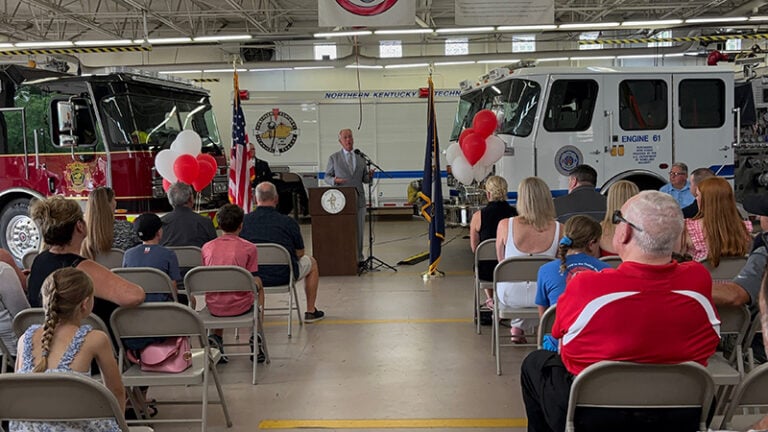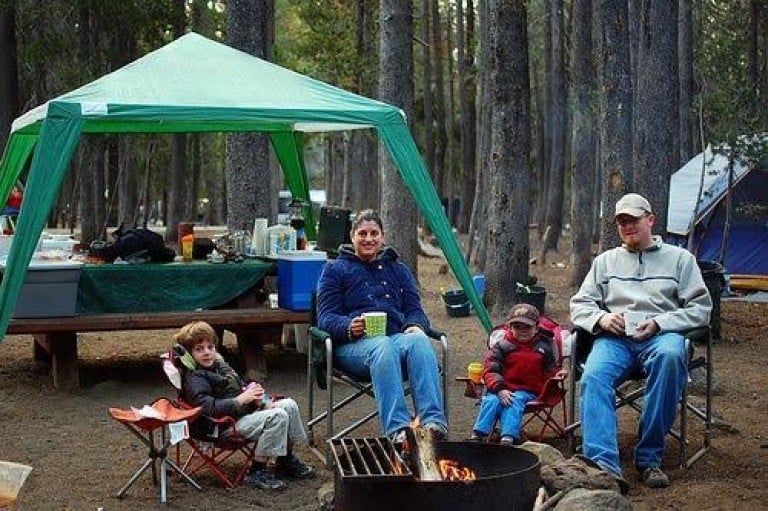With the news that the cost to heat homes this winter is anticipated to go up dramatically, many families are looking for alternative means to help keep costs down. As a result, the market for space heaters is expected to rise considerably as families relying on natural gas and propane to heat their homes seek lower-cost options.
Space heaters can be useful for providing added warmth to a home, but basic safety precautions are necessary to ensure they are safe. Portable electric heaters are high-wattage appliances that have the potential to ignite nearby combustible materials like curtains, beds, sofas, paper, clothing, and flammable liquids. If ignition results from a heater left unattended, a major fire could result.

According to a report from the National Fire Protection Association, heating equipment is a leading cause of residential fires in the United States. Local fire departments responded to an estimated 48,530 fires involving heating equipment each year from 2014-2018. These fires resulted in annual losses of 500 lives, 1,350 injuries, and $1.1 billion in direct property damage.
Heating equipment caused one in seven home structure fires (14%) between 2014–2018 and 19% of home fire deaths. Over half (54%) of the home heating fire deaths were caused by having heating equipment too close to things that can burn, such as upholstered furniture, clothing, mattresses, or bedding.
A vast majority of home heating fire deaths (81%) involved stationary or portable space heaters. They are the leading cause of home fires from December through February, and the second-leading cause of home fires year-round. That’s why it’s important to take adequate measures to protect yourself when using these devices.
It’s important to keep the following safety precautions in mind when using such equipment.
Heaters are primarily used seasonally and are often stored for long periods between uses. Before its use, you should inspect the equipment. It may be damaged from being transported from one location to another. It is critical equipment be examined for signs of damage before operation and watched closely during initial operation to ensure that it functions properly.
Homeowners should also make sure that the heater is approved for the environment in which it is to be used. For example, is the unit approved for direct contact with wood floors? Does it consume oxygen? Does it radiate heat or force heated air across the room?
The manufacturer’s specifications will explain how and where the heater may be safely used.
Here are some additional safety suggestions to follow:

• Replace your old space heaters and replace them with shut-off features and heating element guards.
• Select space heaters with the Underwriters Laboratories safety mark.
• Ensure that the heater is placed on a stable, level surface, and located where it will not be knocked over.
• Keep items that could be a potential ignition source at least 3 feet away from a space heater.
• Do not use space heaters to warm bedding, thaw pipes, or dry clothing.
• Never run the heater’s cord under rugs or carpeting. This can damage the cord, causing it and nearby objects to burn.
• Avoid using extension cords with space heaters. If you must do so, make sure that the cord is the right gauge size and type for the heater.
• Turn off space heaters when you leave the room or go to sleep.
• Supervise children and pets around space heaters to prevent burns.
• Check for frayed insulation, broken wires and overheating on electrical space heaters. If you notice any of these problems, have the unit serviced immediately.
• Exercise special caution when using an electric heater in the bathroom. The accumulation of moisture or direct contact with water and grounded plumbing fixtures could cause electric shocks. Never place the heater near the tub or sink where it could fall into the water.
• Turn off the heater and let it cool before refueling. Use only fuel recommended by the manufacturer for liquid-fueled space heaters.
• Always use the right kind of fuel, specified by the manufacturer, for fuel burning space heaters.
• Don’t use gas- or oil-burning space heaters indoors. These heaters should only be used outdoors or in a well-ventilated space, such as a porch.
• Although gas and electric heaters are most common, some families may still have kerosene heaters. The National Fire Protection Association urges care when filling kerosene heaters because spillage could ignite.
• Install smoke and carbon monoxide alarms and test monthly.
• Each temporary heating unit must have a fire extinguisher with a rating of at least 20-ABC to help put out a fire.
Be Safe My Friends!

















